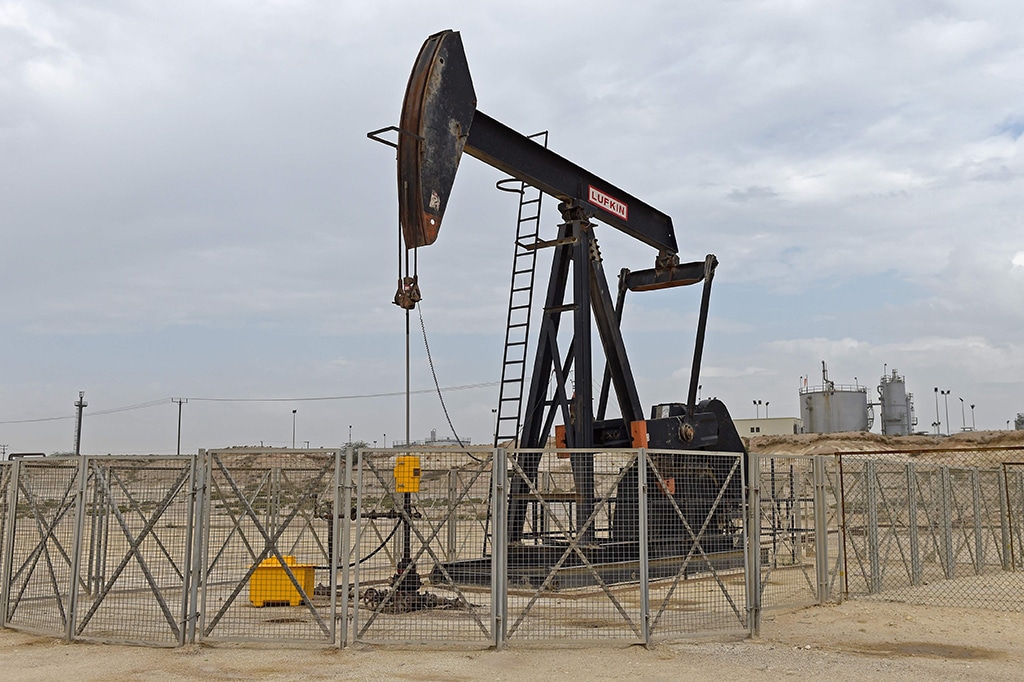VIENNA: Major oil producers led by Saudi Arabia and Russia agreed on Thursday to open the taps wider than expected amid soaring prices and hard on the heels of an EU ban on Russian oil imports. Analysts had foreseen OPEC+ producers sticking to their policy of modest output increases, as they have done since May 2021.
However, pressure has been rising for the 23-strong group to boost output further to try to stabilize prices, which have hit record highs since Russia invaded Ukraine, drawing heavy Western sanctions. OPEC+ has decided to add 648,000 barrels per day to the market in July, up from 432,000 in previous months, it announced after monthly videoconference meetings that lasted about an hour. "The meeting highlighted the importance of stable and balanced markets for both crude oil and refined products," the cartel said in a statement.
Kuwait Deputy Prime Minister, Minister of Oil and Minister of State for Cabinet Affairs Mohammad Al-Fares said the decision to increase oil production will contribute to stabilizing the oil market. This came in a statement by Fares issued by the oil ministry after the minister's participation in the 19th OPEC and non-OPEC ministerial meeting. The minister said OPEC+ is closely following the conditions of the global oil market and prices, praising the organization's decision, which was taken unanimously.
Ahead of the meeting, speculation had swirled about a break in the agreement between the 13 members of the Organization of the Petroleum Exporting Countries, chaired by Saudi Arabia, and their 10 partners, led by Russia. The Wall Street Journal reported on Monday that OPEC was considering suspending Russia from the output deal.
OPEC+ drastically slashed output in 2020 as demand slumped when the world locked down under the coronavirus pandemic. They have increased output modestly to the tune of around 400,000 barrels per day each month since last year, resisting pressure by top consumers, including the United States, to open the taps wider, until now.
But Jeffrey Halley, an analyst at Oanda, said the move would not alleviate the crude supply crunch from sanctioned Russian oil, calling it a "huge disappointment to oil consuming nations". "It seems that OPEC has thrown the US and Europe a few bones... whilst also maintaining OPEC+ unity," he said. "Russia will walk away happy as prices will remain firm."
Russia's invasion of Ukraine has exacerbated concerns about oil supplies, sending prices to record highs this year. As the economic screws have tightened around Russia, prices have further soared, putting pressure on the cartel to open the valves more widely and relieve the market.
European Union leaders agreed on Monday to ban more than two-thirds of Russian oil imports as part of a sixth package of sanctions on Moscow over the Ukraine war. Britain has already announced plans to phase out Russian oil imports by the end of 2022 and eventually stop importing its gas. The United States, too, banned Russian oil and gas days after Russia's invasion began on Feb 24.
Ipek Ozkardeskaya, a senior analyst at Swissquote Bank, called Thursday's decision a "very unexpected development". "It is rather a sign that the ice between Saudi and the US could finally melt after two years of freezing cold relations," she said. "We may be at a political crossroads. If the US could strengthen its ties with Saudi, Saudi would pump more to make up for the Russian oil. That could isolate Russia even more, and change the course of the war," she added.
Ahead of the meeting, some analysts had predicted Saudi Arabia and United Arab Emirates could fill some of the gap as Russia is hit by Western oil sanctions. "Russia has now transformed into a pariah," Seb analyst Bjarne Schieldrop said. "More oil from Saudi and the UAE will allow the West to implement sharper bans forcing Russian oil exports lower while not blowing up the oil price," Schieldrop added.
Several other OPEC+ members have been struggling to meet the output quotas, falling short month after month. Members of the G7 club of industrialized nations last week underlined OPEC+'s "key role" in the face of the tightening of international markets. Soaring oil prices have stimulated the Gulf region's economies, with Saudi Arabia recording its highest growth rate in 10 years over the first quarter of 2022. OPEC was set up in 1960 and joined by the 10 partners through a 2016 declaration. Its mission is to "ensure the stabilization of oil markets". - AFP










